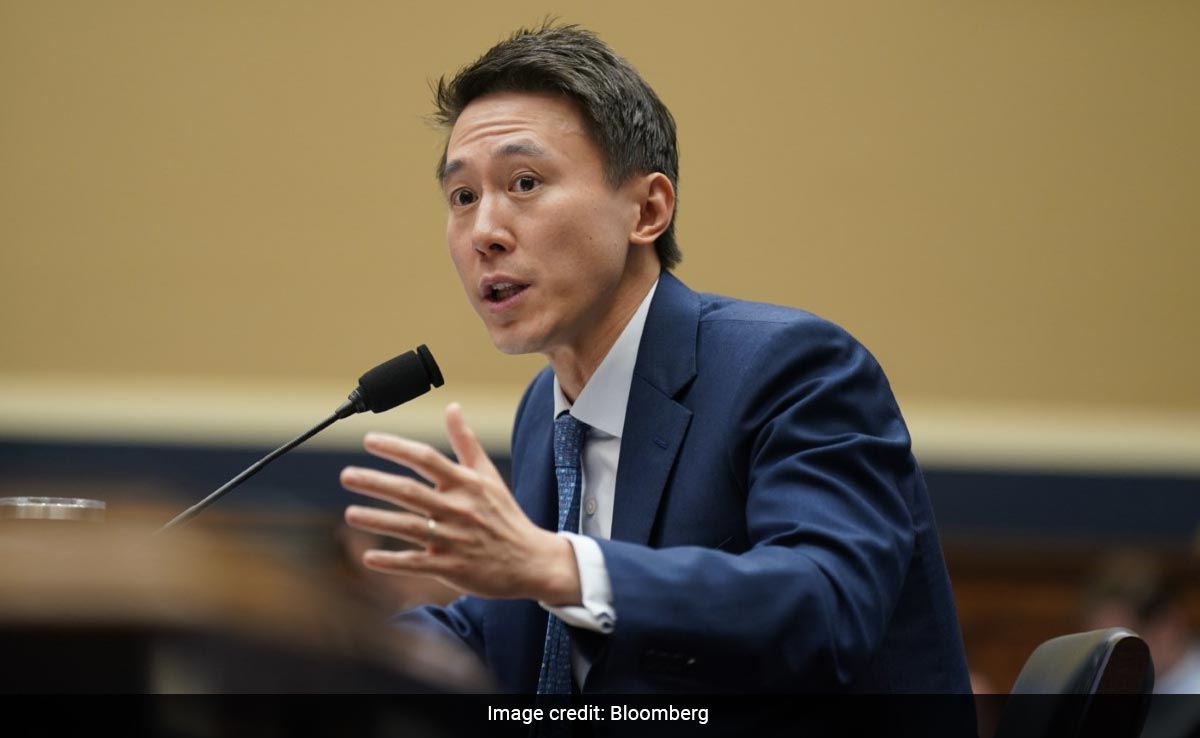TikTok and the videos on its platform are now frequently caught up in global politics
TikTok Chief Executive Officer Shou Chew and other top executives met recently with 40 influential leaders, including many from the tech industry, who were pushing for more moderation of antisemitic content and questioning why pro-Palestine videos were so popular on the short-video app.
The meeting four weeks ago included TikTok executives Adam Presser, head of operations, and Michael Beckerman, head of public policy, according to Anthony Goldbloom, an investment partner at AIX Ventures, who was among the tech industry attendees.
Goldbloom's group was armed with data analysis of TikTok content and a letter signed by 90 professionals, including former Meta Platforms Inc. Chief Revenue Officer David Fischer, Tinder co-founder Sean Rad and Bonobos Inc. co-founder Andy Dunn.
The effort was made to push TikTok to uphold its commitment to "prevent harm," Goldbloom said. Many of the letter signatories felt the app was in violation of its own community principles as claims of harassment on the site have ballooned since the Oct. 7 attack by Hamas on Israel. TikTok's principles also call on it to "enable free expression."
The Israel-Hamas war has unleashed a wave of hate crimes targeting Jews, Muslims and Arabs across the world. The conflict has been magnified through social media platforms including TikTok, owned by China's ByteDance Ltd, and Elon Musk's X. Hamas is designated a terrorist organization by the US and EU. TikTok has banned content supportive of violent and hateful organizations, according to its community guidelines.
Once known mostly as a place for lipsync videos and comedic skits, TikTok and the videos on its platform are now frequently caught up in global politics. The app has become wildly popular, especially among young people, and counts more than 1 billion users. Its ubiquity, and Chinese ownership have made it a frequent target for politicians who have recently renewed calls to ban the app due to the amount of anti-Israel and pro-Palestinian content.
TikTok has met with other high-profile critics amid public pressure to reign in antisemitic harassment. Earlier this month, more than a dozen Jewish TikTok creators and celebrities, including actors Sacha Baron Cohen, Debra Messing and Amy Schumer, spoke with Presser and others, according to the New York Times.
In the video meeting with Chew earlier this month, the tech industry group walked TikTok's team through data compiled from publicly available hashtag information from the app. Based on their analysis, the group found 54 views on pro-Palestine hashtags for every view for #standwithIsrael. That compares with data from an October Harvard Caps Harris poll among 18-24 year olds that showed support for Israel and Palestine as near equal, according to the group.
The tech group showed TikTok executives analysis that more than half of some pro-Palestine videos are coming from countries like Indonesia, Malaysia and Pakistan, and asked how prevalent cross-border videos are in the US. TikTok said during the meeting that there aren't a lot.
TikTok has said counting the number of videos associated with a hashtag doesn't "provide sufficient context" on the leanings of the videos. The hashtag #standwithIsrael may appear on fewer videos than #freePalestine, but it has 68% more views per video in the US, which means more people are seeing the content, the company said earlier this month. TikTok has said 90% of videos posted in the US that were tagged with #standwithIsrael were posted in the prior 30 days.
The company has also said, based on polling data, that attitudes among young people skewed toward Palestine long before TikTok existed.
"This is an extremely difficult time for millions of people around the world and in our TikTok community," a TikTok spokesperson said in response to request for comment on the video call. "We feel it's important to meet with and listen to creators, human rights experts, civil society and other stakeholders to help guide our ongoing work to keep our global community safe."
After the meeting, TikTok released a statement saying analysis of the platform using hashtags is flawed, Goldbloom said. TikTok had previously used hashtag comparisons itself, in response to questions about related hashtags on the app.
TikTok has said that it has removed more than 1.1 million videos in the conflict region for breaking its content rules from Oct. 7 to Nov. 17. During the same period globally, TikTok removed 1.6 million videos including hate speech and hateful behavior videos, which includes antisemitism.
(Except for the headline, this story has not been edited by NDTV staff and is published from a syndicated feed.)






Leave a Reply